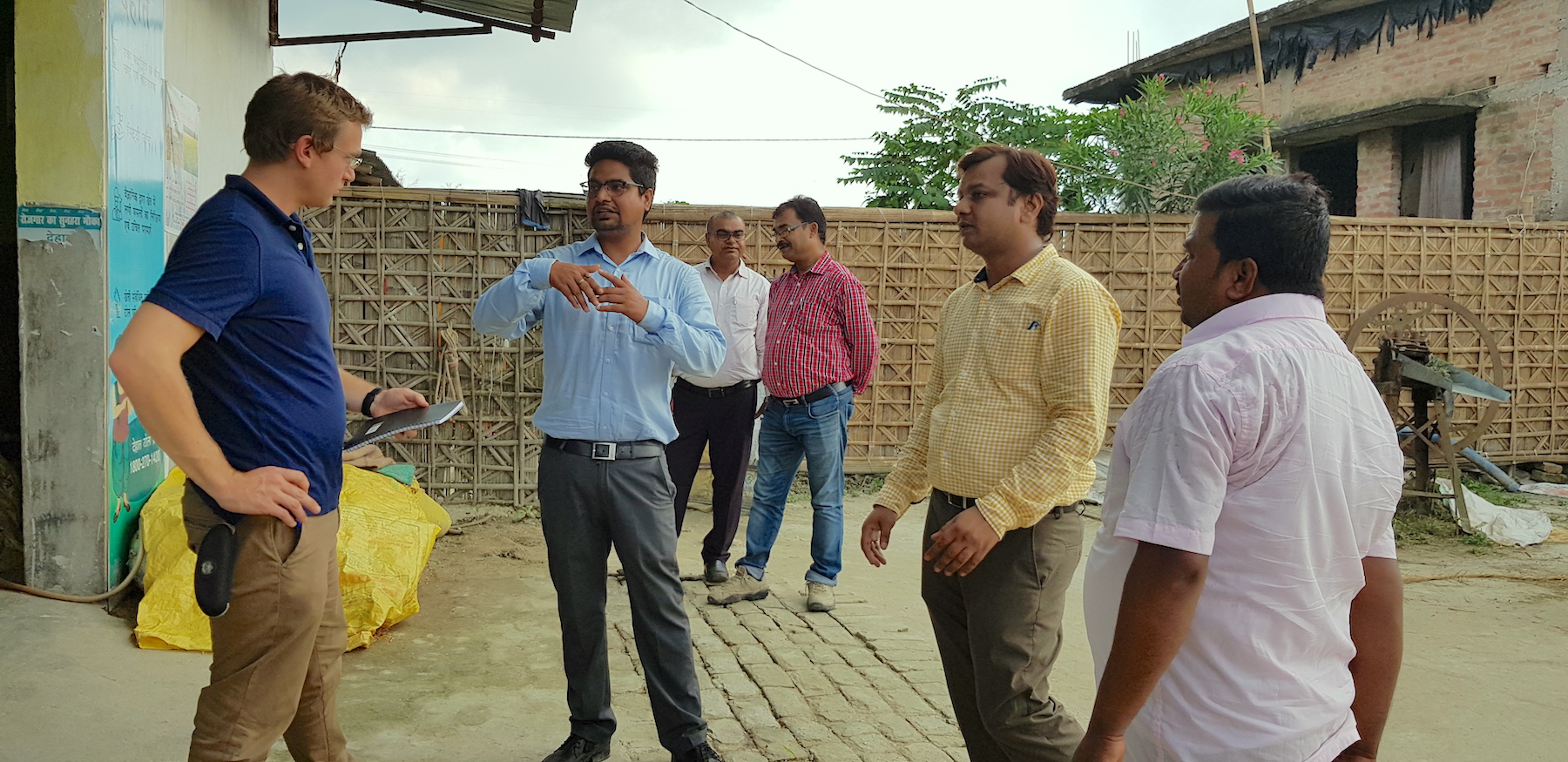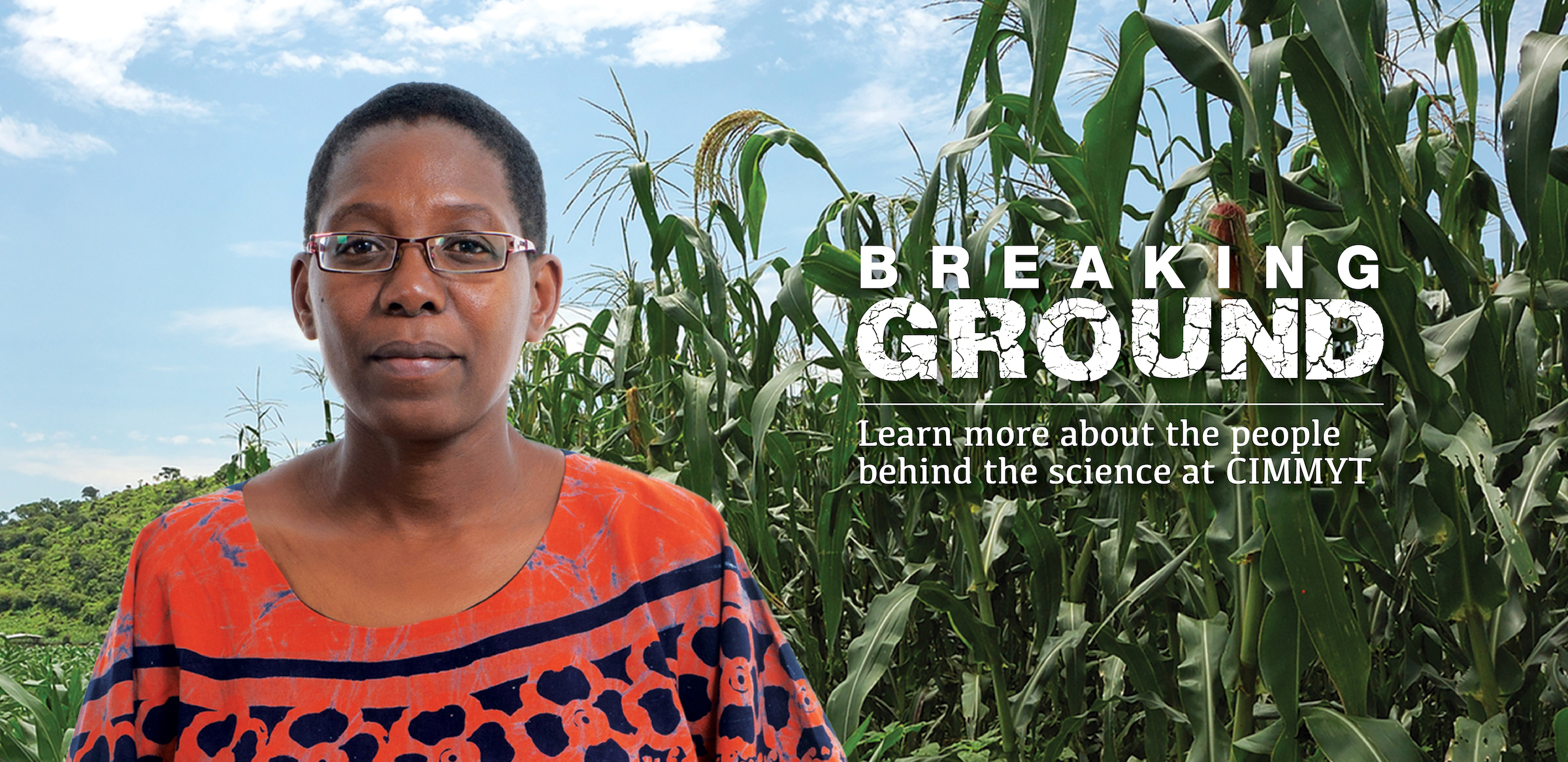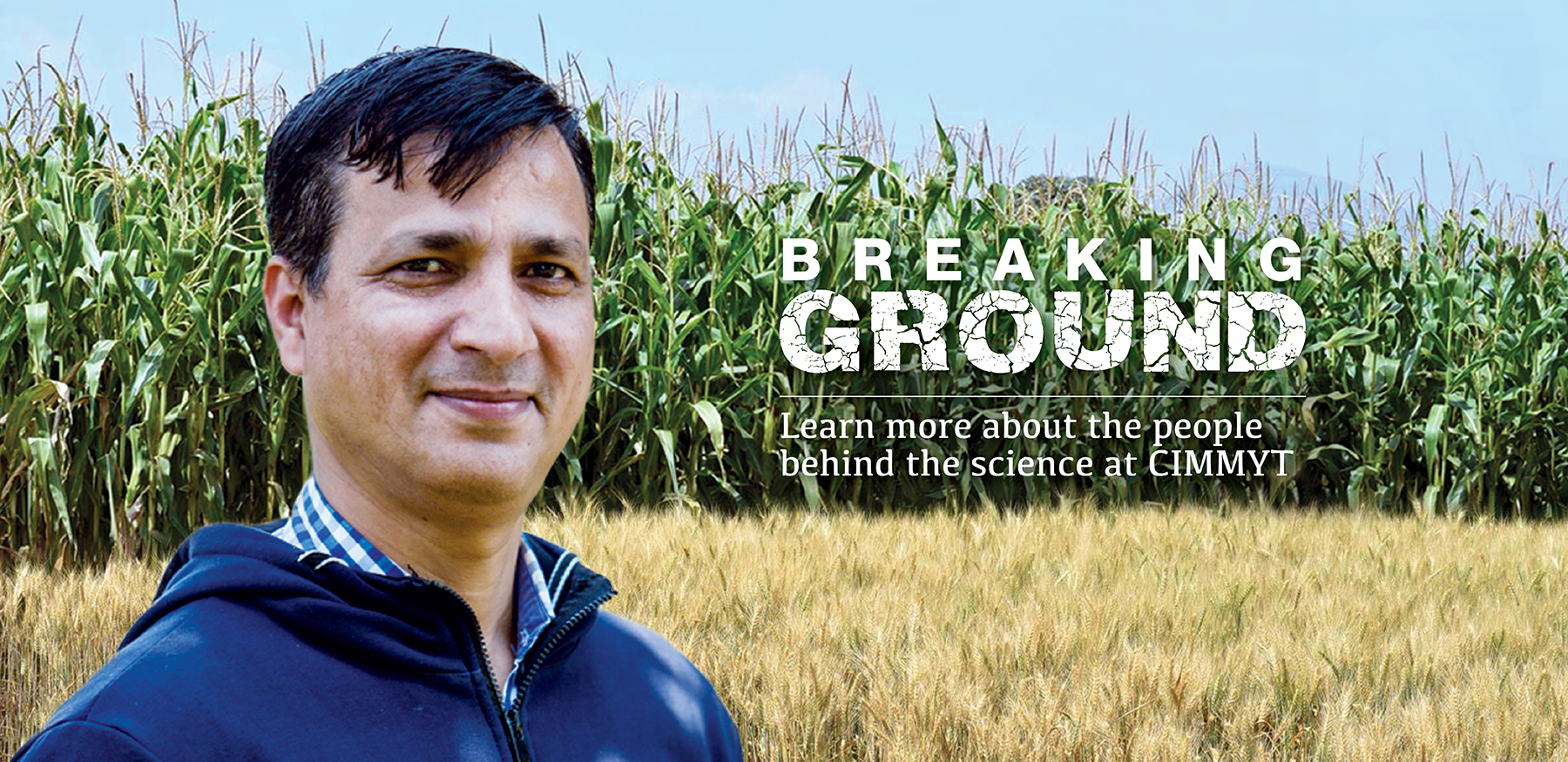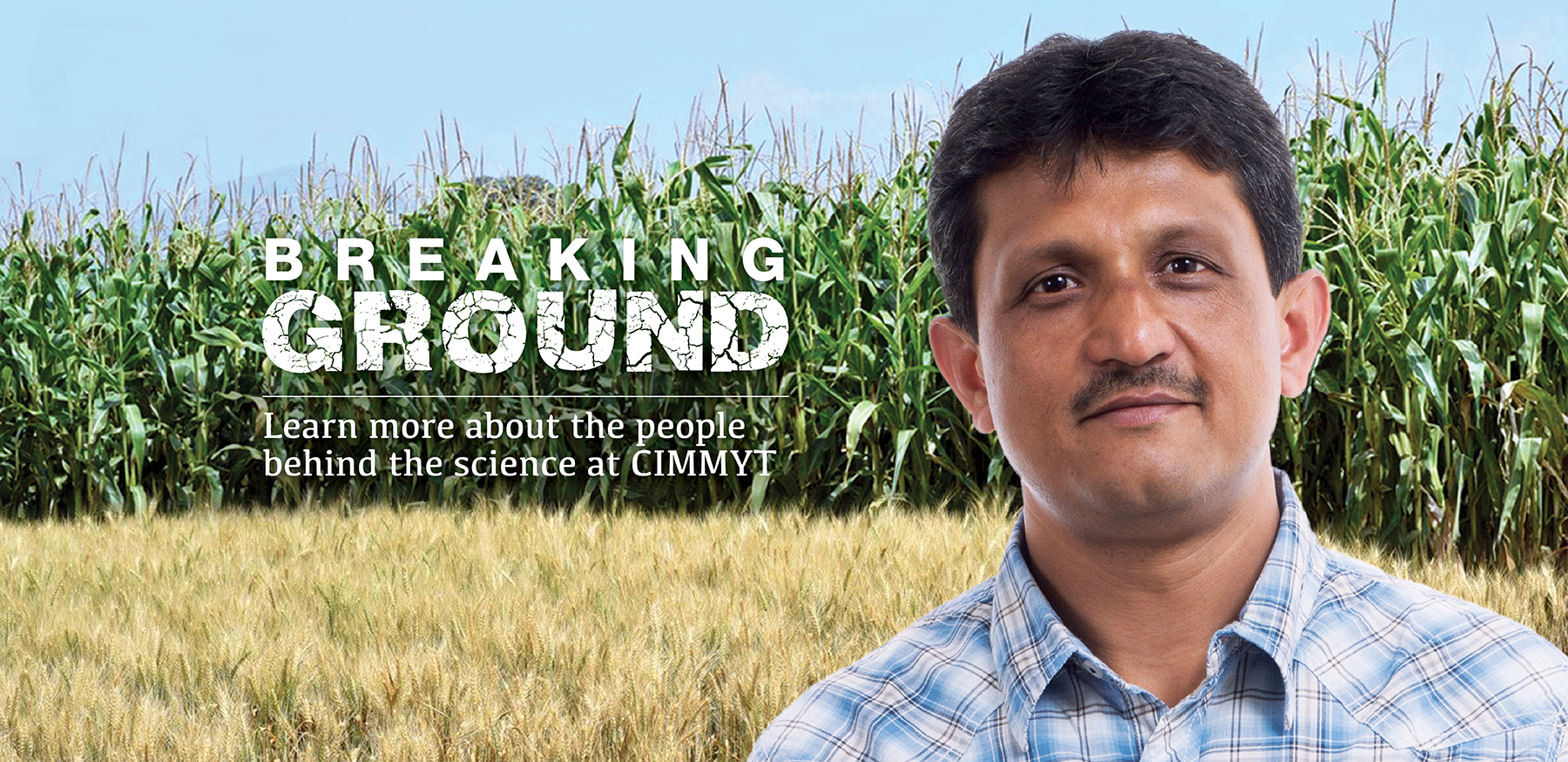Agricultural research for development has tremendous potential for widespread impact in poverty alleviation and food security. However, achieving real benefits for farmers is challenging and many well-intentioned projects fail to achieve large-scale impact. According to Brendan Brown, a postdoctoral research fellow with CIMMYT’s socioeconomics program in Nepal, this is where his work can help.
“There have been decades of work trying to improve agricultural livelihoods, but many of these interventions are yet to have tangible impacts for farmers,” Brown said. “My research seeks to help address this gap, using novel frameworks and applying participatory methods.”
Socioeconomic research at CIMMYT plays a key role at the nexus of agricultural innovations, helping to enhance interventions and initiatives for greater impact. Knowledge from such studies helps to prioritize and target resources, optimizing research capacity and accelerating the uptake of innovations.
“I attempt to understand constraints and opportunities at various scales from farms all the way up to institutional levels,” Brown explained. “I then seek to find pathways to catalyze change that lead to improved farmer livelihoods. Such research is integral to getting agronomic research into farmers’ fields.”
This area of research calls for a mixture of qualitative and quantitative tools and expertise, for which Brown is well suited. He has a bachelor’s degree in Agricultural Science with a major in Soil Science. “However, after working in agricultural research and development for a few years, I saw a gap in linking agronomy to the contextual realities of smallholder farming, so I opted to pursue a career that bridges the gap between the physical and social sciences.”
A desire to help
Brown grew up in Australia, between Sydney and a family farm on the south coast of New South Wales. He enjoyed being outdoors, “preferably barefoot,” participated in hobby farming, and from an early age showed an interest in social justice issues. A career aptitude test taken towards the end of high school revealed he was suited to be one of three things: a ship captain, a nurse or an agricultural scientist. He opted for the latter.
It was at university that Brown gained the insight of applying his agricultural knowledge to helping smallholder farmers. During a backpacking trip from Cape Town to Cairo, which incorporated some agricultural volunteering, he witnessed first-hand the difficulties farmers face in sub-Saharan Africa. Upon returning to his studies, he resolved to pursue a career that would enable him to help smallholders and, at the same time, address some of the world’s biggest ethical dilemmas.
Research with impact
Newly graduated, Brown worked with the Australian Centre for International Agricultural Research (ACIAR), based in Canberra, and the Food and Agriculture Organization of the United Nations (FAO), based in Ghana, where he gained hands-on experience working in agricultural systems in developing countries across Asia, Africa and the Middle East. It also inspired his PhD, which explored the disconnect between development work at research stations and the reality experienced by African farmers.
“During my PhD, I collaborated with CIMMYT through the Sustainable Intensification of Maize Legume Systems in Eastern and Southern Africa (SIMLESA) initiative. I developed a more nuanced approach to what ‘adoption’ actually means in terms of uptake and impact assessments. I also studied communities’ attitudes to conservation agriculture practices and diagnosed key institutional bottlenecks within research and extension systems.”
Brown’s studies allowed him to develop novel mixed methods and participatory impact pathways to promote new farming practices, such as conservation agriculture, to smallholder farmers in Africa. “My work with CIMMYT allows me to contribute to solving some of the world’s biggest issues. Through interacting with smallholders, facilitating conversations and creating new understanding, I hope to contribute to real change.”

Moving to Asia
After spending nearly a decade in and out of Africa, he joined the CIMMYT team in Nepal earlier this year and is relishing the opportunity to explore new contexts in South Asia.
“So much potential exists within the food systems of South Asia given the existence of multiple cropping seasons and diverse markets, as well as exciting developments in the use of mechanization and irrigation that have potential for delivering large-scale benefits, driving improved food security and profits.” However, he points out the integration of such innovations in this part of the world can be challenging due to inherent complex social hierarchies and caste systems. “I still have much to learn within such complex systems.”
Brown’s work in South Asia focusses on understanding the adoption, scaling and impact of sustainable intensification technologies and practices. He is primarily working with the Sustainable and Resilient Farming Systems Intensification (SRFSI) initiative, which aims to reduce poverty by making smallholder agriculture more productive, profitable and sustainable while safeguarding the environment and involving women in agriculture.
By studying the portfolio of CIMMYT-led initiatives in the region, he is also developing his understanding of prevailing sustainable intensification practices and the issues farmers face when implementing them. In addition to his work with SRFSI, Brown is soon to embark on a new ACIAR-funded research project aiming to enhance sustainable mechanization of farming systems in two provinces of Nepal by mobilizing strategic planning and collaboration.
“I look forward to sitting down with local agricultural service providers to understand how they run their businesses and how they structure their livelihoods,” Brown expressed. “This will then be paired with the perspectives of farmers, as well as extension officers, researchers and policymakers to build theories of change and pathways to maximize the uptake and impact of sustainable intensification practices.”
He highlights how local ownership of change can be fostered by implementing participatory methods during this process. This can result in transformative change, felt from the institutional level all the way to the smallholder farmer. Brown hopes his work in South Asia will deliver widespread impact for smallholder farmers and he welcomes collaboration and sharing of ideas and approaches with others working towards similar objectives.

 Gender equality, youth and social inclusion
Gender equality, youth and social inclusion 
